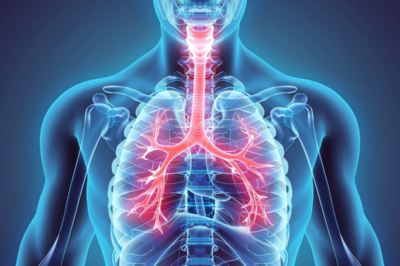
The COVID-19 pandemic has left an indelible mark on global health, but as we navigate through its aftermath, a concerning trend has emerged: a significant number of individuals are grappling with lingering respiratory problems long after recovering from the initial infection. These post-COVID respiratory complications, often referred to as “long COVID” or post-acute sequelae of SARS-CoV-2 infection (PASC), have brought to light the virus’s ability to inflict long-term damage on the respiratory system.
The spectrum of post-COVID respiratory issues ranges from mild, persistent coughs and shortness of breath to more severe conditions such as pulmonary fibrosis, a condition characterized by the scarring of lung tissue. This scarring can lead to a decrease in lung function, making it difficult for individuals to perform everyday activities without experiencing breathlessness. Moreover, some patients develop a condition known as post-COVID interstitial lung disease (ILD), which can significantly impact their quality of life and requires ongoing medical attention.
One of the primary challenges in addressing post-COVID respiratory problems is the variability of symptoms and their impact on individuals. While some people may experience a gradual improvement in their respiratory function, others may find their conditions worsening or persisting over time. This unpredictability necessitates a personalized approach to treatment, often involving a multidisciplinary team of healthcare professionals, including pulmonologists, physical therapists, and mental health specialists.
To mitigate the effects of post-COVID respiratory complications, early intervention and comprehensive rehabilitation programs are crucial. Pulmonary rehabilitation, a program that combines exercise training, education, and breathing techniques, has shown promise in improving lung function and overall well-being in individuals affected by long COVID. Additionally, ongoing research into the long-term effects of COVID-19 is essential to develop targeted therapies and interventions that can help alleviate these respiratory issues.
Furthermore, the persistence of post-COVID respiratory problems highlights the importance of preventive measures, including vaccination, to protect against severe infection and its long-term consequences. As our understanding of COVID-19 continues to evolve, so too must our strategies for managing and preventing its lasting impact on respiratory health.
In conclusion, “Breathing New Challenges: Post-COVID Respiratory Complications” emphasizes the need for continued vigilance and innovation in addressing the respiratory aftermath of COVID-19. By fostering a deeper understanding of post-COVID conditions and developing effective treatment and rehabilitation strategies, we can help those affected breathe easier and regain their quality of life. The journey toward recovery may be long for some, but with the right support and medical care, there is hope for improvement and healing.








































Leave a Reply